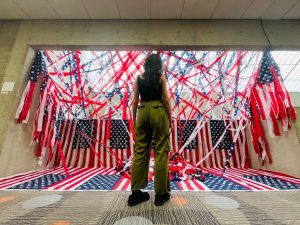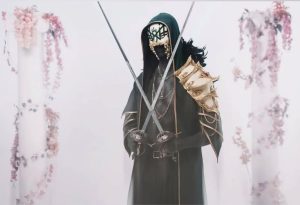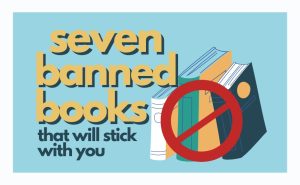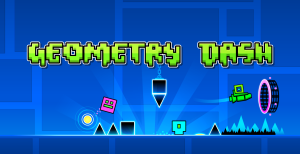Schools, shootings, safety
A look at active shooter situations, aftermath of Parkland
February 28, 2018
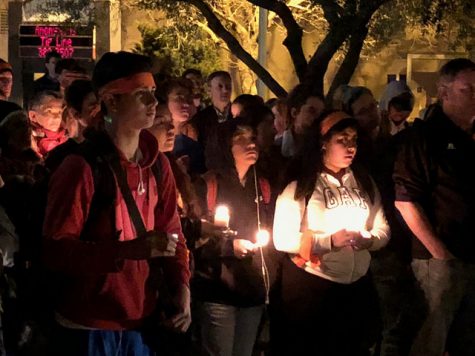
Students at Tam Valley High School in California participate in a vigil following the mass shooting in Parkland, Florida.
Gun control and school safety burst onto the national stage yet again after 17 students at Marjory Stoneman Douglas in Parkland, Florida were gunned down Feb. 14. The accused shooter Nikolas Cruz confessed to being the shooter to the Broward County Sheriff’s Office and has been charged with 17 counts of premeditated murder.
Since the shooting in Parkland, 10 Indiana districts have investigated real or rumored copycat threats according to the IndyStar.
Locally, four schools in Warrick County were on lockout Feb. 19 after an anonymous threat was posted online. Police eventually found this threat to be unviable. An 18-year-old Central High School student was also arrested Feb. 16 after he threatened to “shoot up” the school on Facebook according the Evansville police.
Todd Schroer, the chair of the criminal justice department said threats to shoot up schools are felony offenses, and people assume they are not going to get caught because they are anonymous on the internet, but they don’t realize they can be traced.
“I don’t think a harsher punishment will deter people who don’t even realize it’s a serious criminal offense right now,” he said. “If we just started giving more publicity to what these people face as punishments, it would help deter it some.”
Schroer said people who make threats will go to juvenile court and possibly adult court depending on their age and seriousness of the threat.
“Most law enforcement is reactive and not proactive. People call them, they get information and they go and try to help out, but very little law enforcement activity is spent trying to find people that haven’t committed a crime yet.”
He said raising awareness about what the penalties are is best way to prevent people from making threats, and the best way to limit gun violence in the country is to keep guns out of the hands of people who are violent.
He said mental illness plays almost no role in determining whether someone is more likely to commit these types of crimes, but it is more related to masculinity.
“A lot of it has to do with being taught that you’re supposed to be in charge, take the lead, be aggressive, don’t show emotions, so you keep things bottled up and it kind of explodes from that,” Schroer said. “That seems to be playing a bigger role than mental illness.”
Associate Professor of Political Science and Public Administration Nick LaRowe said the country might see some incremental changes in gun control but nothing huge.
“These are really culture war issues,” he said. “People will stand how they stand.”
LaRowe said it is tough for law enforcement to deal with threats made against school because it is difficult to judge whether or not it is legitimate.
“I’m thankful for the sheriff’s deputies on campus,” he said. “Having an armed force is really one of the best ways to prevent an attack.”
The university Student Rights and Responsibilities: Code of Student Behavior lists a number of weapons that are not allowed on campus which includes firearms, paintball guns, pellet guns, swords and fireworks.
“I can just tell you that the active shooter issue is something that has been ongoing and increasing over the past couple of years,” Public Safety Director Steve Bequette said. “We have provided training across campus to anyone who requests it, we have that advertised on the website.”
Public Safety offers active shooter training for any department on campus, and training typically takes around 45 minutes to an hour. Bequette said requests for these presentations have increased since the Parkland shooting.
He said a lot of faculty, staff and student groups have asked and received this training, and Public Safety has inservice training every spring with dispatchers being trained on shooting incidents with a mock run.
Bequette said that if there were an active shooter situation on campus, they teach faculty and staff to call Public Safety first because they are typically the first responder and closer to guide a law enforcement response to the scene and gain information. He said Public Safety’s main goal is to assist everyone with the three items they teach: run, hide, fight. They also obtain intelligence on the shooter including how many, what type of weapon, where it’s at, where it could be moving to, and directing law enforcement in with their response.
He said a majority of their staff is EMT trained, but would never be in contact with the shooter because they aren’t armed.
Bequette said an on-duty sheriff’s deputy from the Vanderburgh County Sheriff’s Office (VCSO) is on campus Monday through Friday, and an off-duty deputy in the evenings will typically patrol housing.
“The VCSO comes out and sees us drive through campus. It’s a beautiful campus to begin with, and we are very lucky that deputies spend time out here and do drive-throughs, visibility helps,” Bequette said. “We have stressed to them to increase their visibility, which they have.”
He said Public Safety has lots of information that they provide to the campus community and are in discussion with student affairs and the Dean of Students Office (DOSO) to try and inform incoming freshman about active shooter situations during orientation week or in UNIV 101.
“As a whole, everyone should wake up,” Bequette said. “These types of events happen, and don’t ever believe it can’t happen to you.”
Freshman international business major John Sauls said that while social media has its downfalls, he believes it is the best way for students to spread their message.
“I don’t think the kids at Parkland would be able to get their message out as easily without social media,” he said. “It definitely helped them get their opinions out about what happened at their school so it doesn’t happen again.”
Sauls, who is also the vice president of the College Democrats, said he feels safe on campus, and Public Safety is equipped to handle a potential active shooter in the best way possible.
“This can’t keep happening, this can’t be acceptable in our country,” he said. “I think it’s a miscommunication. Republicans think people are trying to take guns away, where in reality, it’s mostly just regulation.”
The university has also taken steps to secure classroom doors, spending $263,300 to change the locks on classroom and lab doors over the summer. They also spent an additional $140,100 on changing the locks to campus office suites, University Center East and West and some housing buildings.
Senior political science major Mark Abell said he doesn’t foresee any changes to gun laws despite the shooting in Parkland and threats made to schools in the area.
“If it continues at a rapid pace and public pressure ramps up and the president gets behind it like he seems to be doing, than it’s definitely an option but it just doesn’t seem likely the way our government is right now,” he said.
Students from Parkland and across the nation have called on Congress to enact stricter gun control, culminating into the “March for Our Lives,: a planned demonstration scheduled to take place Mar. 24, in Washington, D.C. and throughout the United States. Abell said doesn’t believe this activism will have any impact.
“I think right now at this moment that good for these students, but I don’t think the government is going to take advice from a 16 year old or 18 year old kid. Especially now since the governor of Florida doesn’t want them to have a rifle, so what can you do at 18 years old besides just talking about the issue?” he said.
Sophomore political science and international studies major Sheridan Proctor-Zenker said she thinks change is coming but both the Democrats and Republicans need to work on implement better gun laws and stop listening to the NRA.
“They just pay for so much that none of them want to speak out about it,” she said. “If they thought that these kids were being genuine then they might have to actually consider changing something, and if they make themselves believe that the kids are political and being used as puppets, then it makes them feel better about not doing anything.”
Trent Engbers, an assistant professor of political science, said he doesn’t believe politics are currently in favor of new gun legislation, but many of the root problems are social.
He said the response to the shootings from students across the country might not change legislator’s minds but is pleased to see them getting politically active.
“That is what’s most exciting to me,” he said. “It’s a sign of real life in our democracy.”
Noah Alatza contributed to this story.



